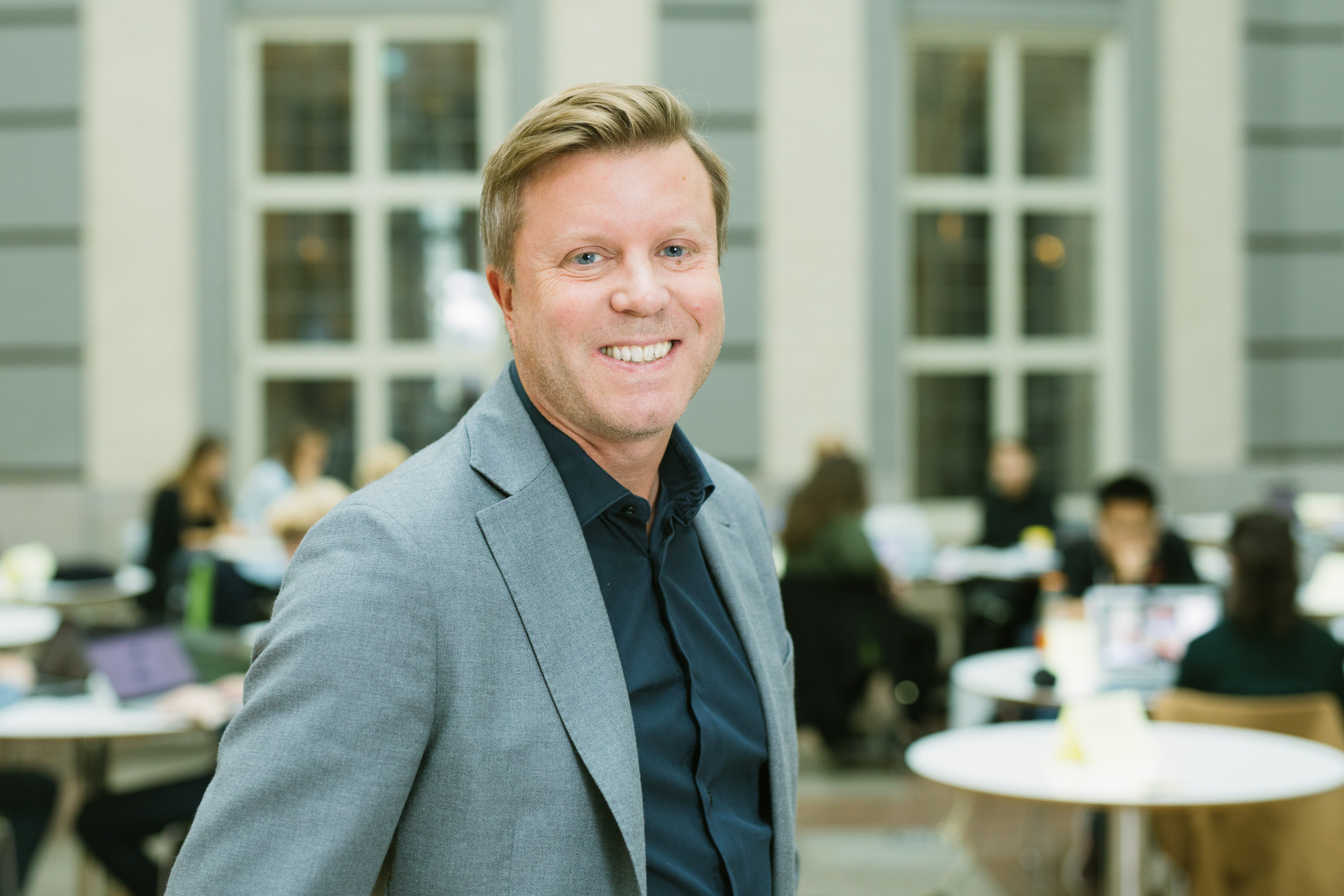Professor Mattias Nordqvist, SEB Chair in Entrepreneurship and Family Business and Professor in Business Administration at the House of Innovation (HOI) at the Stockholm School of Economics (SSE) teaches and researches on entrepreneurship, strategic renewal, and governance in private companies, in particular, family businesses.
Professor Nordqvist's current research projects focus on new venture creation and governance, sustainability in large family-controlled businesses, entrepreneurship and strategic renewal in family businesses as well as the organization and role of family offices.
In 2024 he will teach his course, "Entrepreneurial Family Firms" as a Global Network Course for the second time. We asked him about this experience teaching the course and who should take the course.

What made you decide to teach this particular course as a SNOC?
Family businesses are exciting! They are the most common form of organization around the world and most business school students will work in or with a family business at some point in their career. Some might start or take over their family’s business, others might work as managers or directors in a family business, and yet others might advise and consult family businesses. To be successful in all these roles, you need to understand the exciting but specific characteristics and challenges that are unique for family business! This course offers a good way to develop such an understanding.
Who should take this course?
Anyone who is interested in family business and curious to know more about how and why family businesses are different compared to other businesses. The course focuses a lot on different success factors that drive family businesses to perform well and thrive over the long run. We talk a lot about how to avoid pitfalls that might threaten the survival of family businesses. This is important for anyone who works in a family business such as an owner, manager, successor, advisor, consultant or in any other role or capacity.
What does the global virtual environment of a SNOC provide for students in terms of cross-cultural learning, and how can this also help you?
First and foremost, it enables me as a teacher to create a very diverse and dynamic learning environment for the students attending the course. The option to join the course virtually creates a student group with different backgrounds, experiences, and interests which they can bring to the table and share with others. This is unique and tends to create very nice and crisp discussions. The global learning environment also creates the opportunity for students to meet guest speakers and practitioners from real business cases who they would not otherwise meet. This is often very appreciated.
What do you hope students take away from your class that they can apply to their careers, regardless of the path they choose?
Family businesses receive a lot of attention these days; partly for very positive reasons such as their long-term orientation, commitment to quality and their focus on driving sustainability. But they are also often in the limelight for less flattering issues such as conflicts, succession dramas and family feuds. This is probably also why an increasing number of drama series and movies take place in a family business - like HBOs popular series “Succession”! Family businesses is an exciting world where business and finance is mixed with people, emotions and relationships. Students who take the course will learn how to deal with this unique context in a way that makes them successful in any role they might have in or with a family business.
Is there anything I haven’t asked you about that is worth considering or mentioning?
Students who take this course appreciate the balance between theory and practice. We combine the latest research-based evidence with a lot of practical cases and examples. There are many guest speakers from family business, or from companies that work with advising family businesses. The very strong practical focus in combination with a rigorous scientific foundation is a hallmark of the course. It means that students will feel confident in applying their new knowledge immediately after the course.
